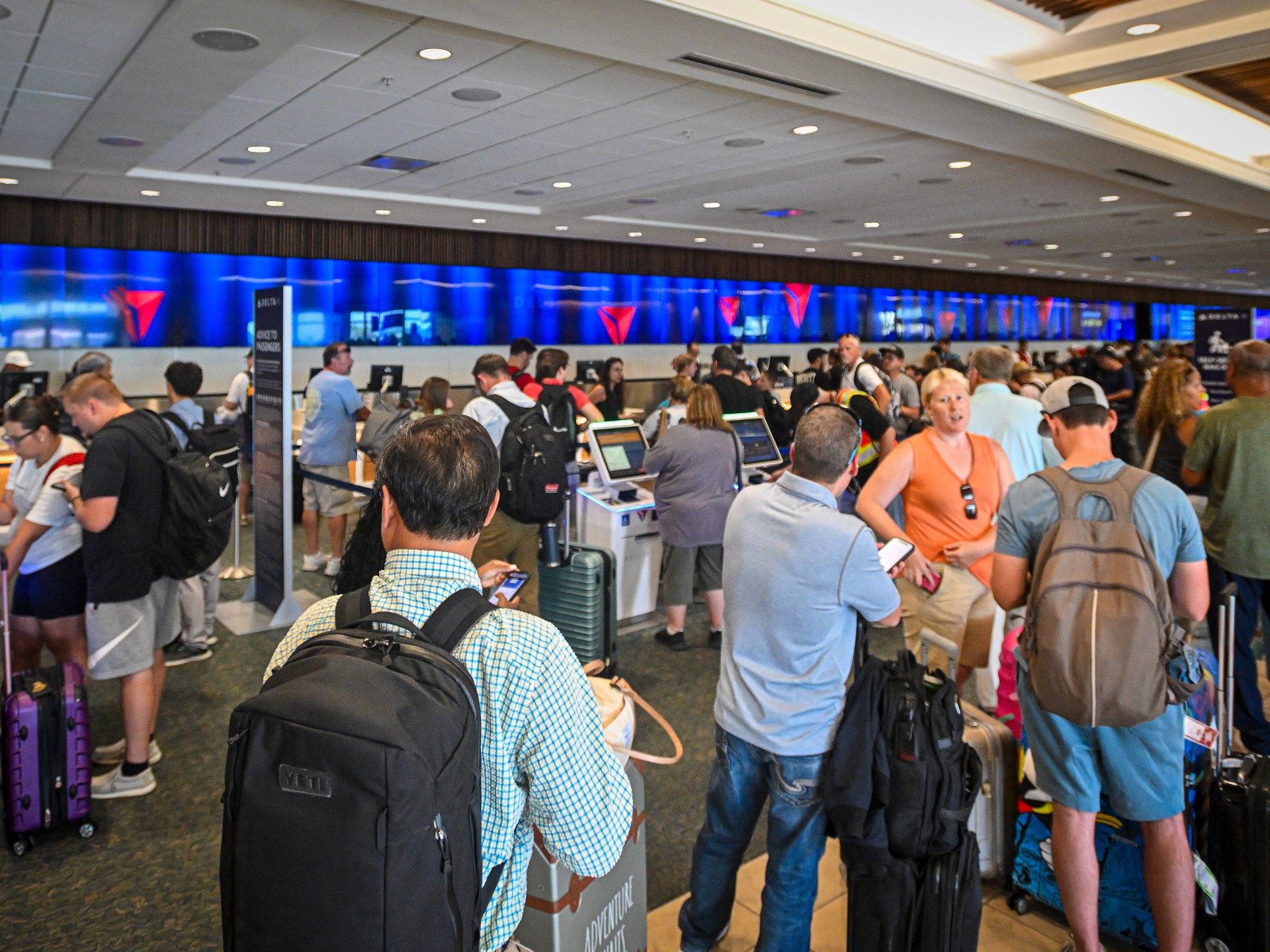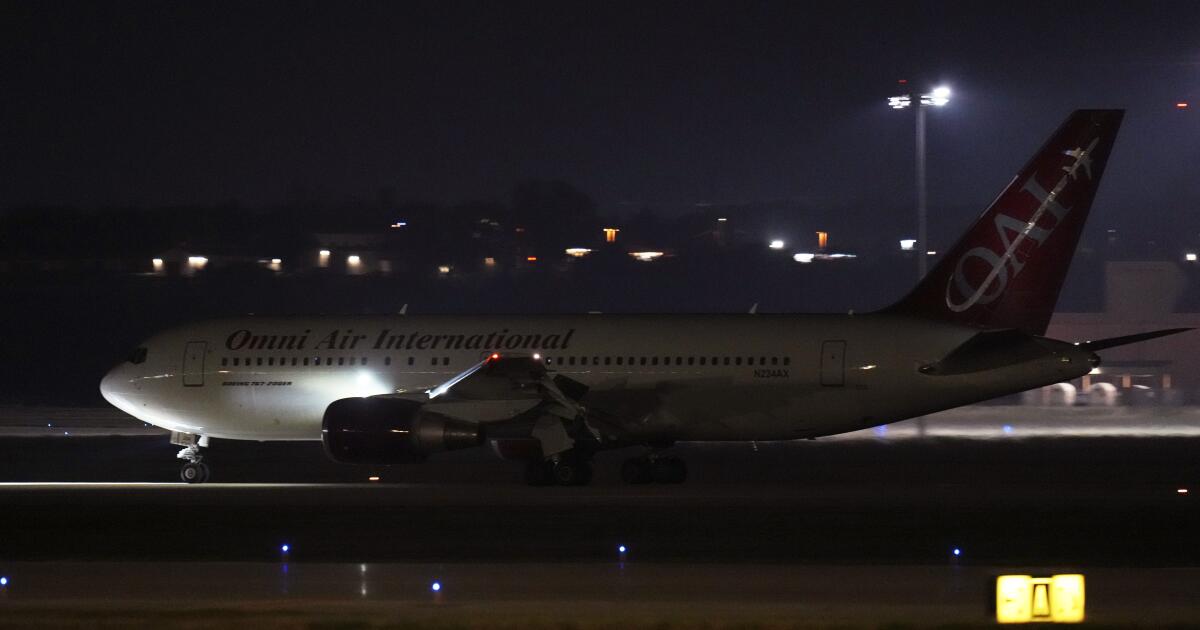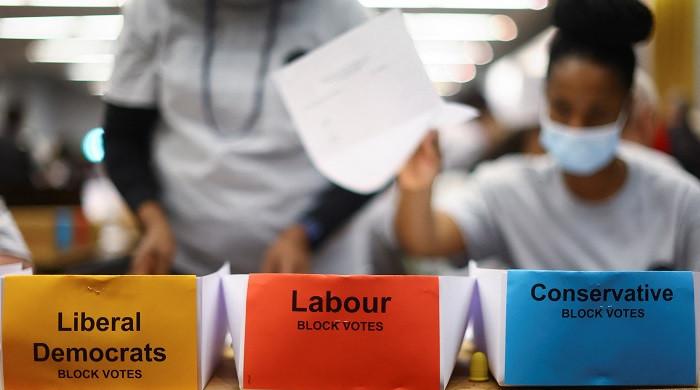Businesses and services around the world were slowly recovering after a massive technology disruption wreaked havoc around the world and raised questions about the vulnerability of the interconnected global economy.
A faulty software update caused Friday's “unprecedented” outage, cancelling flights, knocking out financial firms and media outlets and disrupting the operation of hospitals, supermarkets, small businesses and government offices.
Several services were back online on Saturday, but George Kurtz, the chief executive of US cybersecurity firm CrowdStrike (whose botched software update on its Falcon sensor affected Microsoft's Windows operating system) warned that a full recovery could take weeks.
CrowdStrike said it had implemented a fix for the issue and Kurtz said he wanted to “personally apologize to every organization, every group, and every person who has been impacted” by the widespread outage.
US President Joe Biden's team was speaking with CrowdStrike and those affected and was “ready to provide assistance as needed,” the White House said in a statement.
“We understand that flight operations have resumed across the country, although some congestion remains,” a senior U.S. administration official said.
Junade Ali, from Britain's Institute of Engineering and Technology, said the scale of the blackout was “unprecedented and will undoubtedly go down in history”, telling AFP news agency the last incident approaching the same scale was in 2017.
In Europe, major airports, including the German capital Berlin, which had suspended all flights on Friday, said departures and arrivals were gradually resuming.
However, dozens of European flights were cancelled. Turkish Airlines said it had cancelled 84 flights and Italian officials confirmed that around 80 departures had been cancelled.
Across Latin America, airports asked passengers to arrive for their flights hours earlier than usual.
Chinese state media said Beijing's airports had not been affected.
Companies were left patching their systems and trying to assess the damage, even as officials tried to calm panic by ruling out foul play.
The outage “exposed a vulnerability in the economy and volatility in the markets,” said Al Jazeera’s Kristen Saloomey, reporting from New York.
“Systems are being restored. Resolving the consequences for ordinary people may take longer,” he added.
Other experts said the incident should prompt a widespread reconsideration of how dependent societies are on a handful of technology companies for such a variety of services.
“We need to be aware that this type of software can be a common cause of failures for multiple systems at the same time,” says Professor John McDermid of the University of York (Great Britain), an expert in cybersecurity and software engineering.
He told AFP that infrastructure should be designed “to be resilient to these kinds of common-cause problems.”
Today was not a security or cyber incident. Our customers remain fully protected.
We understand the seriousness of the situation and deeply regret the inconvenience and disruption. We are working with all affected customers to ensure that systems are back up and running again.
—George Kurtz (@George_Kurtz) July 19, 2024
One analyst said that while Friday's events were damaging to CrowdStrike, he did not expect competitors to gain much market share as a result of the incident.
“This is clearly a big hit to CrowdStrike and the stock will be under pressure,” said Dan Ives, an analyst at Wedbush Securities, but he told Reuters news agency that the incident was due to a technical update and not a hack or cybersecurity threat, which he said would be “more worrying.”
CrowdStrike shares fell more than 11 percent on Friday, Reuters reported. The company, which previously had a market capitalization of about $83 billion, is among the world's most popular cybersecurity providers, with nearly 30,000 subscribers worldwide.












